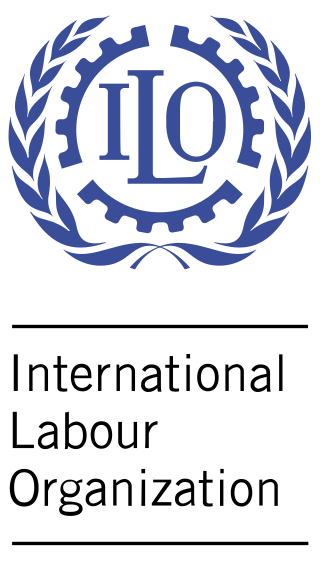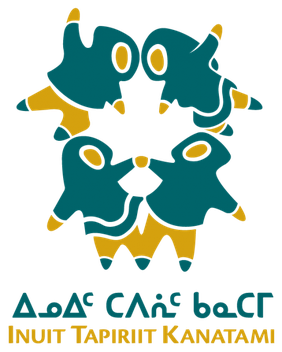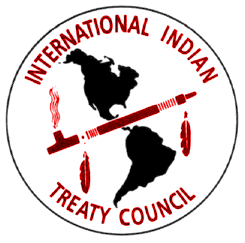Incomindios (International Committee for the Indigenous Peoples of the Americas) is a human rights organization that focuses on the rights of the native populations of North, South, and Central America. It is headquartered in Zurich, Switzerland with a branch in London, UK.
The organization was founded in 1974 on the suggestion of members of the International Indian Treaty Council.
Since 2003, the organization has been given non-governmental organization status (Category II) at the Economic and Social Council of the United Nations.
Today Incomindios Switzerland has over 1,000 members and is headquartered in Zürich.
Incomindios Switzerland was founded to give Indian groups access to the UN Working Group on Indigenous Populations in Geneva. This task continues through the efforts of a voluntary task force.
Other voluntary working groups are involved in efforts for the release of Leonard Peltier, against uranium mining in Indian lands, and for improved education and communications infrastructure for Indians.
The three key focuses of the organizations are:

The International Labour Organization (ILO) is a United Nations agency whose mandate is to advance social and economic justice by setting international labour standards. Founded in October 1919 under the League of Nations, it is one of the first and oldest specialized agencies of the UN. The ILO has 187 member states: 186 out of 193 UN member states plus the Cook Islands. It is headquartered in Geneva, Switzerland, with around 40 field offices around the world, and employs some 3,381 staff across 107 nations, of whom 1,698 work in technical cooperation programmes and projects.

The American Indian Movement (AIM) is an American Indian grassroots movement which was founded in Minneapolis, Minnesota in July 1968, initially centered in urban areas in order to address systemic issues of poverty, discrimination, and police brutality against American Indians. AIM soon widened its focus from urban issues to many Indigenous Tribal issues that American Indian groups have faced due to settler colonialism in the Americas. These issues have included treaty rights, high rates of unemployment, the lack of American Indian subjects in education, and the preservation of Indigenous cultures.

The Assembly of First Nations is an assembly of Canadian First Nations represented by their chiefs. Established in 1982 and modelled on the United Nations General Assembly, it emerged from the National Indian Brotherhood, which dissolved in the late 1970s.

Inuit Tapiriit Kanatami, previously known as the Inuit Tapirisat of Canada, is a nonprofit organization in Canada that represents over 65,000 Inuit across Inuit Nunangat and the rest of Canada. Their mission is to "serve as a national voice protecting and advancing the rights and interests of Inuit in Canada."
The Fundação Nacional dos Povos Indígenas or FUNAI is a Brazilian governmental protection agency for Amerindian interests and their culture.

Uncontacted peoples are groups of Indigenous peoples living without sustained contact with neighbouring communities and the world community. Groups who decide to remain uncontacted are referred to as indigenous peoples in voluntary isolation. Legal protections make estimating the total number of uncontacted peoples challenging, but estimates from the Inter-American Commission on Human Rights in the UN and the nonprofit group Survival International point to between 100 and 200 uncontacted tribes numbering up to 10,000 individuals total. A majority of uncontacted peoples live in South America, particularly northern Brazil, where the Brazilian government and National Geographic estimate between 77 and 84 tribes reside.

The Council for International Organizations of Medical Sciences (CIOMS) is an international non-governmental organization of 40 international, national, and associate member groups representing the biomedical science community. It was jointly established by the World Health Organization (WHO) and United Nations Educational, Scientific and Cultural Organization (UNESCO) in 1949 as a successor to the International Medical Congress that organized 17 conferences from 1867 until the 1913 outbreak of World War I.

The International Work Group for Indigenous Affairs (IWGIA) is an independent and non-profit international human rights-based membership organization, whose central charter is to endorse and promote the collective rights of the world's indigenous peoples. Established in 1968, the IWGIA is registered as a non-profit organization in Denmark, with the head office of its secretariat based in Copenhagen. IWGIA's work is primarily funded by the Nordic Ministries of Foreign Affairs and the European Union.
Indigenous people under the nation-state have experienced exclusion and dispossession. With the rise in globalization, material advantages for indigenous populations have diminished. At times, national governments have negotiated natural resources without taking into account whether or not these resources exist on indigenous lands. In this sense for many indigenous populations, the effects of globalization mirror the effects of the conquest in the mid 16th century.

The Saami Council is a voluntary, non-governmental organization of the Sámi people made up of nine Sámi member organizations from Finland, Norway, Russia, and Sweden. Since the founding of the Nordic Saami Council in 1956, among the first indigenous peoples' organizations, the Saami Council has actively dealt with Sámi public policy tasks. In 1992, when Russian Sámi groups joined the council, "Nordic" was removed from the council's name. The secretary was previously sited in both Helsinki and Utsjoki, Finland, but is now in Kárášjohka, Norway. The Saami Council is funded by a range of grants, and its engagements are based on decisions, statements, declarations, and political programs from the Saami Conference held every four years.
Indigenous rights are those rights that exist in recognition of the specific condition of indigenous peoples. This includes not only the most basic human rights of physical survival and integrity, but also the rights over their land, language, religion, and other elements of cultural heritage that are a part of their existence and identity as a people. This can be used as an expression for advocacy of social organizations, or form a part of the national law in establishing the relation between a government and the right of self-determination among its indigenous people, or in international law as a protection against violation of indigenous rights by actions of governments or groups of private interests.
Pan-Indianism is a philosophical and political approach promoting unity and, to some extent, cultural homogenization, among different Indigenous groups in the Americas regardless of tribal distinctions and cultural differences.

Loriene Roy is an American scholar of Indigenous librarianship, professor and librarian from Texas. She was the first Native American president of the American Library Association when she was inaugurated in 2007.

The International Indian Treaty Council (IITC) is an organization of Indigenous Peoples from North, Central, South America, the Caribbean and the Pacific working for the Sovereignty and Self-Determination of Indigenous Peoples and the recognition and protection of Indigenous Rights, Treaties, Traditional Cultures and Sacred Lands.

Alyn (Alan) Ware is a New Zealand peace educator and campaigner in the areas of peace, non-violence, nuclear abolition, international law, women's rights, children's rights and the environment. He has served as the Global Coordinator for Parliamentarians for Nuclear Nonproliferation and Disarmament since it was founded in 2002.
The Swiss Informatics Society, short "SI", is a Swiss organization of computer science educators, researchers, and professionals.
The Declaration on the Rights of Peasants is an UNGA resolution on human rights with "universal understanding", adopted by the United Nations in 2018. The resolution was passed by a vote of 121-8, with 54 members abstaining.
The Canadian Association of the Deaf estimates that there are over 350,000 Deaf Canadians, but there is not an exact number since there has never been a formal census on Deaf Canadians. There are approximately 1.2 million Indigenous people and over 750 reserves in Canada. There are various intersections of deaf and Indigenous culture, including valuing community, rooting their identity in their culture and its associated group instead of their individuality, having their identities oversimplified, being underrepresented in research and data collection, and experiencing health inequities due to their identities. There is limited research on Deaf Indigenous people, but the Saskatchewan Human Rights Association argues that issues faced by Deaf people are exacerbated when that person is also Indigenous.

The local history of Native Americans in Washington, D.C., dates back at least 4,000 years.